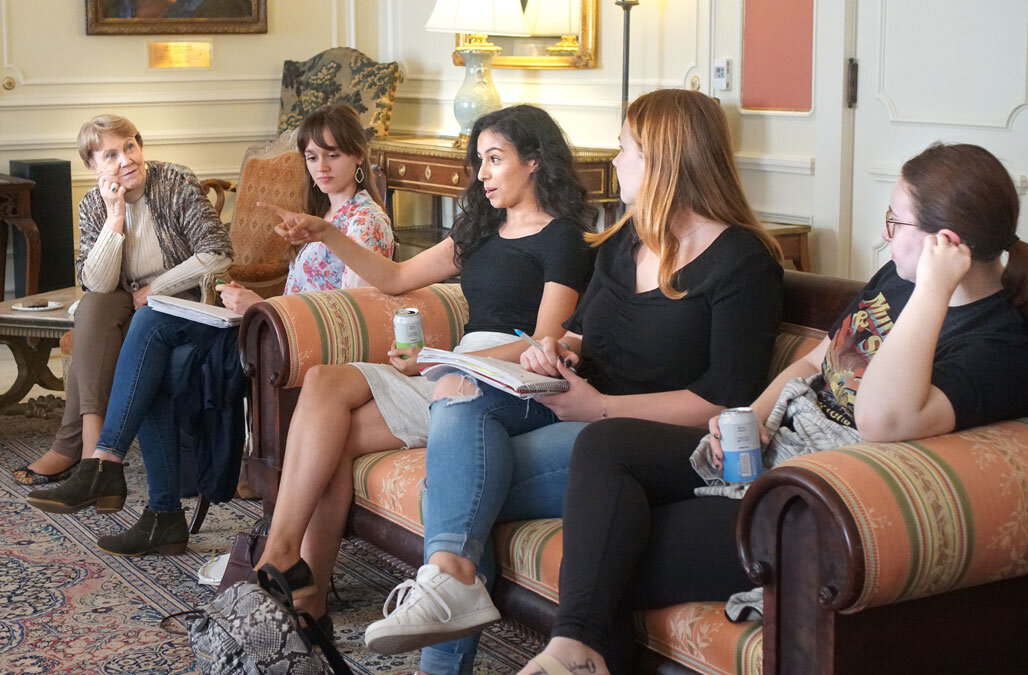“I knew that in order to meaningfully contribute to systemic approaches to healthcare, healthcare policy, and patient care, I needed to understand the context in which those policies were being applied and build relationships with the communities that were being most affected.”
— Noha Sherif, T'14
ABOVE: NOHA SHERIF TALKS WITH CURRENT DUKE STUDENTS ABOUT THE IMPACT SERVICE-LEARNING HAS HAD ON HER LIFE.
“The service-learning framework taught me two important principles. The first is that the context in which academic learning is applied will always be multidimensional in nature, and that the best way to understand the various interacting forces at play is by immersing yourself on the ground. Secondly, service-learning taught me the importance of involving local communities in addressing any community-level change. These two principles have come to guide my approach to academic and professional experiences.
Since graduating from Duke, I spent four years using my undergraduate training in health disparities to implement various sections of the Affordable Care Act before enrolling in medical school. The decision to obtain medical training was guided in large part by the core principles I learned through my service-learning courses. I knew that in order to meaningfully contribute to systemic approaches to healthcare, healthcare policy, and patient care, I needed to understand the context in which those policies were being applied and build relationships with the communities that were being most affected. By joining the medical community, I knew that the personal interactions I’d take part of would be the stepping stone to meaningful, macro-level change.”
— Noha Sherif, T'14

